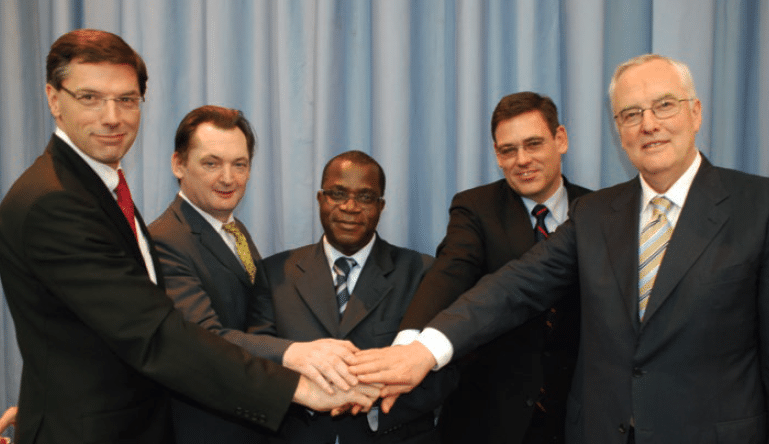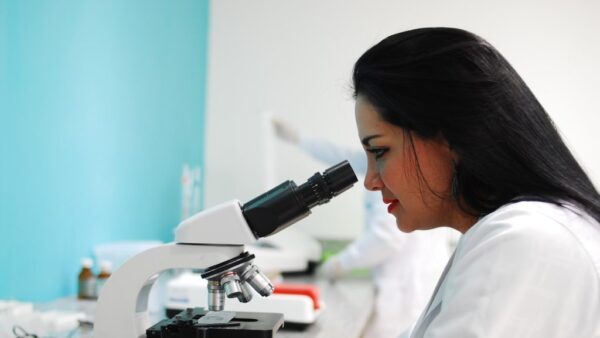An in-depth overview on the global seed industry. From a top-notch conference in Beijing to a successful seed convention in Buenos Aires.
STATUS ISF
The International Seed Federation is organizing its 2014 ISF World Seed Congress in Beijing, China, in the Fengtai district, which lies in the southwest corner of the city. China currently has around 1.35 billion people, of which 600 million work in agriculture. The country has around 133 million hectares of arable land, which gives a land per capita ratio of less than 0.1 hectares. There are around 6,900 seed companies, of which 2,700 are state-owned. The country is speeding up its modern crop development and the seed industry is growing at a rapid pace, which in turn is leading to a steady increase in seed export and seed import values for the country. The most important crops are rice, maize, wheat, soybean, cotton, oil crops (rapeseed) and vegetables. The domestic market for seed is a little over USD$9 billion, making it the second-largest seed-producing country in the world after the United States, which has an estimated domestic market of seeds of around USD$12 billion.
These vast figures underline the timeliness of organizing an ISF World Seed Congress in China. To accommodate the ISF delegates, the Chinese National Organizing Committee is overseeing the construction work of a convention center plus hotels in the Fengtai district. To get updated on the progress in the construction work, I attended the twentieth Beijing Seed Congress, which is organized in the same area, and visited the construction site. The plans indicate that the venues, once finalized, will meet all the ISF requirements in terms of floor space, room nights, trading facilities and other parameters.
At the Beijing Seed Congress, held from September 10 to 13, I was invited to make a speech during the opening ceremony. I underlined the necessity of a good enabling environment for the seed industry to grow, and urged the Chinese government to become a member of OECD Seed Schemes, to arrange for accredited ISTA laboratories and to implement to UPOV 1991 Act.
—Marcel Bruins, secretary general, ISF
STATUS CHINA
The twelfth China Seed Workshop, organized by the China Seed Workshop Association and CCM Information Science and Technology Co., was held in Beijing, China, on September 12, 2012. The summit attracted top managers from companies such as Bric Global Agricultural Consultant Ltd., Limagrain and Rijk Zwaan. About 40 delegates from different companies attended to discuss the current situation and future development of China Seed Workshop and seed policy interpretation.
China Seed Workshop is designed to act as a high-end platform to communicate with top-level experts and business managers face to face. This year, the conference included a presentation on cucumber breeding by Dehua Ma, president of Tianjin Derit Seed Company. Discussions were moderated by the DuPont Pioneer seed industry affairs manager Zhangmeng Yu. Chief of seed management in Beijing Guohui Jie and Guangzhou Information Technology company researcher Xuejian Shi offered interpretations of the new national seed industry policy.
Expert speakers shared their unique perspectives and expertise, and interacted with their audiences through question and answer sessions. One question raised was as follows: “How can foreign seed companies reflect the aspirations of the Chinese government?” Guohui Jie’s response was that foreign-funded enterprises usually make recommendations or demands to the government, and foreign companies can also make recommendations to the government through the Association of Enterprises. In addition, few small enterprises participate in the governmental organizations forum, which is a good opportunity.
Participants said they benefited from the event, and expressed the hope that it aids development of China’s seed industry in the future. “We are so glad that China Seed Workshop is receiving more and more recognition,” said CCM in a statement. “We will continue to provide high-quality market information and hold professional events to meet customers’ needs.”
—CCM International
STATUS ARGENTINA
The third edition of the Buenos Aires Seed Convention (BASC2012), hosted by the Cámara De Semilleristas De La Bolsa De Cereales (CSBC) at the Buenos Aires Sheraton Hotel and Convention Center from September 4 to 5, 2012, brought together companies working in seed research, breeding, production, trade and related services from Argentina, Australia, Brazil, Chile, South Africa, the United States and Uruguay, totalling 69 representatives.
The purpose of this annual event is to promote trade between local and foreign companies dealing in forage and turf species. BASC2012 also offered members the opportunity to arrange one-on-one meetings with potential business partners.
Participants analyzed the current situation and global outlook for the sector, explored different business opportunities and made new contacts. Many meetings concluded with firm transactions and future lines of work.
Throughout the two days, participants analyzed the current situation and global outlook for the sector, explored different business opportunities and made new contacts. Many meetings concluded with firm transactions and future lines of work. Above all, closer links were established between companies from the region and companies from other parts of the world.
CSBC members currently represent over 90 percent of the forage and turf seed market as well as related services. The institution celebrated its 57th anniversary in November 2012 and is proud to host this type of initiative, which contributes to the development and professionalization of this industry in Argentina.
Colleague companies are invited to participate in BASC2013 and experience the event that has gained its place on the international agenda of the forage and turf seed sector. Further information is available at www.csbc.com.ar.
—María Añón, Cámara de Semilleristas de la Bolsa de Cereales
















